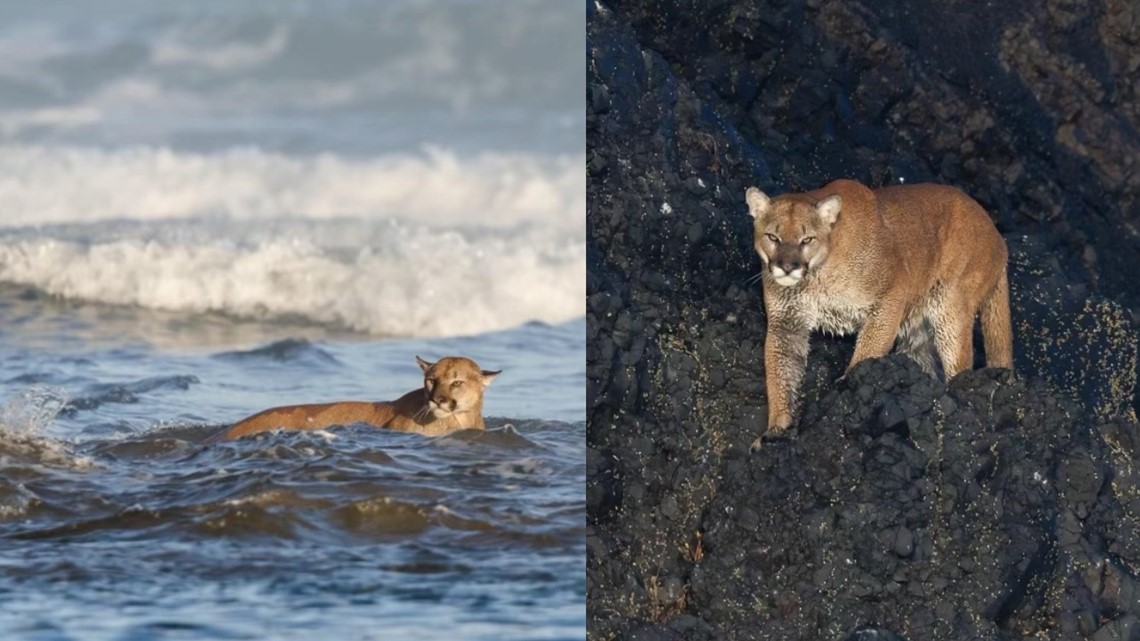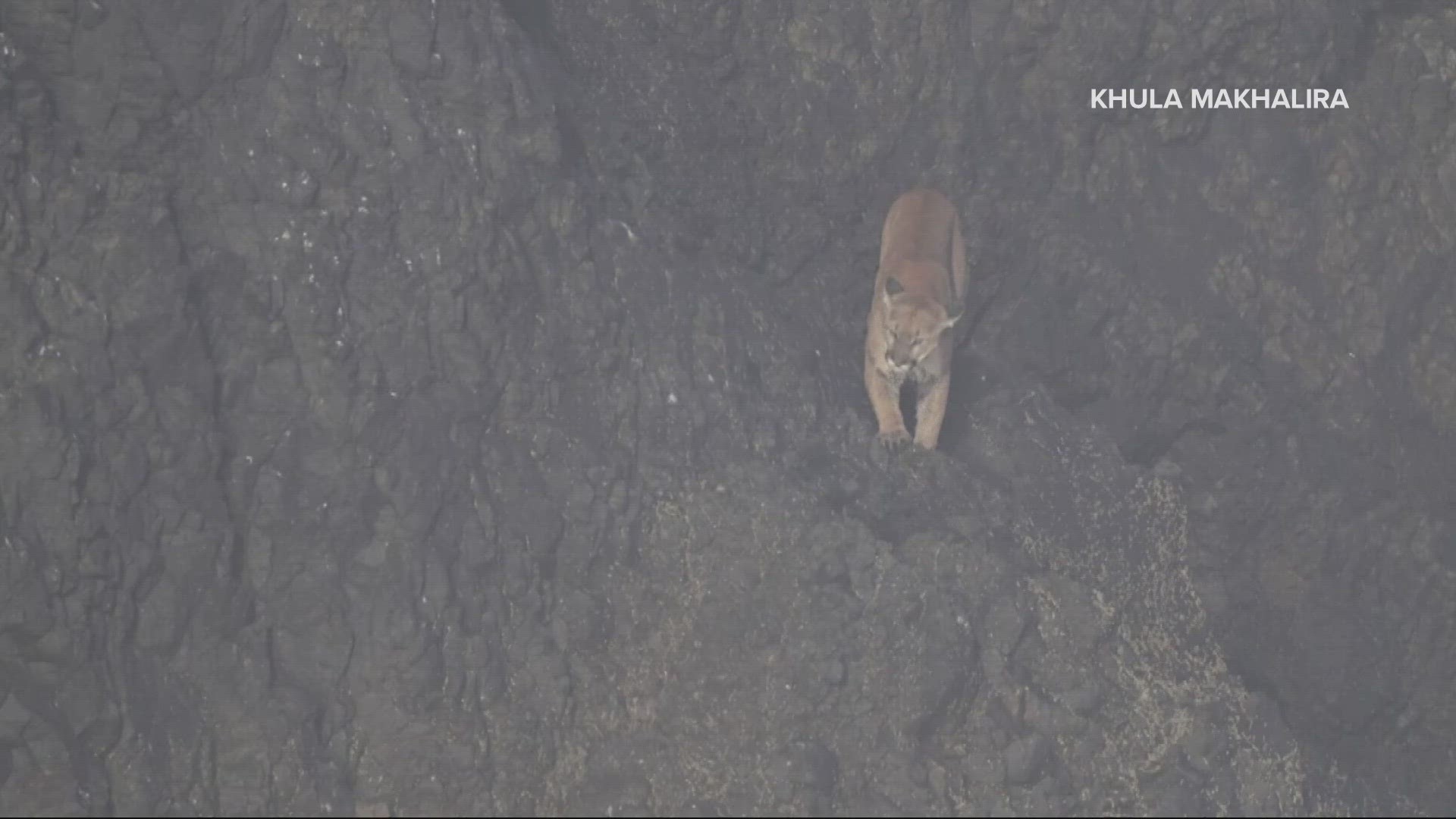CANNON BEACH, Ore. — Authorities in Cannon Beach reopened the section of beach around Haystack Rock Monday morning after concluding that the cougar that was spotted on the Oregon coast landmark over the weekend had departed.
Cannon Beach Police Chief Jason Schermerhorn told KGW that Oregon State Police and Oregon Department of Fish and Wildlife Employees found what appeared to be cougar tracks leading away from the rock when they were investigating early Monday morning.
The U.S. Coast Guard flew over the area later in the morning and did not see any signs that the cougar was still there, he added, and police confirmed just before 10 a.m. that the beach had reopened. Beachgoers could be seen making their way back out toward the rock at around the same time on KGW's camera at Cannon Beach.
The beach around the iconic landmark was closed to the public Sunday morning while officials responded to sightings of a cougar on the rocks, and police confirmed early in the afternoon that there was indeed an adult mountain lion on Haystack Rock. The beach was closed up to the dunes to give the animal an escape route.
Officials from the Oregon Department of Fish & Wildlife theorized that the cougar came down to the rock at low tide Saturday night to hunt birds. The 235-foot-tall rock formation is a favorite nesting place for seabirds during the summer months.
"While the forested areas along the coast are prime habitat for cougars, it is unusual that a cougar made its way on to Haystack Rock,” said ODFW District Wildlife Biologist Paul Atwood. “Their primary food source is deer, but they will also consume elk, other mammals and birds.”
Photographer Andy Woo caught photos of the cougar swimming in the water.


According to the U.S. Fish & Wildlife Service, Haystack Rock is a designated wilderness area protected as part of the Oregon Islands National Wildlife Refuge. Areas of the rock above mean high tide are closed to the public year-round to protect those nesting seabirds, which include common murres, pigeon guillemot, black oystercatcher and tufted puffins.
“It’s one of the best places on the entire West Coast to see tufted puffins in the wild and this opportunity attracts tens of thousands of visitors. The rock itself sees more than 350,000 visitors annually,” said Dawn Harris, visitor services manager for Oregon Islands NWR.
Cougar numbers along Oregon's Coast Range have been growing in recent years, ODFW said, as the big cats migrate from areas with denser populations in search of new habitat.
It was the second time cougars have reportedly been spotted on the northern Oregon coast in the past several days. On Friday, the Oregon State Parks and Recreation Department closed the eastern section of the Loop Trail at Nehalem Bay State Park, 16 miles south of Cannon Beach, due to multiple cougar sightings there.
More cougar sightings happened Sunday and Monday nights in Nehalem Bay State Park, and ODFW confirmed that this was not the same cougar as the one on Haystack Rock. The trail remains closed as state officials work on next steps for safety.
Cougars generally prefer to avoid humans, and ODFW said that they will often retreat if given the opportunity. Officials gave the following safety tips if you encounter a cougar:
- Stay calm and do not run away. Running can trigger a chase response in cougars, which could lead to an attack.
- Raise your voice and speak firmly.
- Maintain direct eye contact.
- Pick up children, but do so without bending down or turning your back on the cougar.
- Back away slowly.
- If the cougar displays aggressive behavior or does not leave, raise your arms to make yourself look larger and clap your hands.
- In the unlikely event of an attack, fight back with rocks, sticks, bear or pepper spray, tools or any items available.

